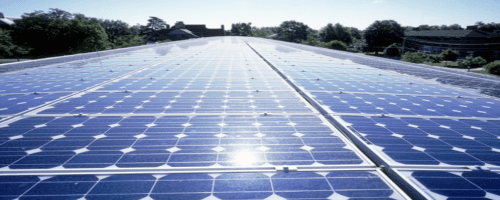
Press release: Guide to Making Clean Local Energy Accessible Now
Guide released that enables communities and utilities to realize economic and sustainability goals with community-based renewable energy.
November 30, 2011
For Immediate Release:
Guide to Making Clean Local Energy Accessible Now
Guide released that enables communities and utilities to realize economic and sustainability goals with community-based renewable energy
Palo Alto – Today, the Clean Coalition released the final installment of the Local CLEAN Program Guide, a free how-to guide that facilitates the evaluation, design, and implementation of Clean Local Energy Accessible Now (CLEAN) Programs. The Guide is based on global best practices for ramping cost-effective renewables and reaping the associated economic and sustainability benefits. It draws upon lessons from successful CLEAN Programs in the United States, such as in Gainesville, Florida and Sacramento, California, as well as soon-to-be announced programs around the country, including in Fort Collins, Colorado and Palo Alto, California.
A CLEANProgram promotes the growth of a strong clean energy economy by reducing the time, risks, paperwork, and other costs of selling renewable energy from under-used spaces in our communities, such as warehouse rooftops and capped landfills. CLEAN Programs have been implemented at the local, state, and national level around the world with unparalleled success in driving renewable energy deployments, strengthening local economies, and creating more self-reliant communities. There are more than two-dozen CLEAN Programs now developed or close to announcement in the U.S. alone.
“Our Local CLEAN Program Guide provides step-by-step recommendations to help local policymakers and utilities implement cost-effective and economically beneficial renewable energy procurement programs,” explained Craig Lewis, Executive Director of the Clean Coalition. “We created this tool to help communities accomplish a broad range of economic and sustainability goals driven by private investment. The effectiveness of CLEAN Programs is unparalleled in getting cost-effective renewable energy deployed and reaping the associated economic benefits at the same time.”
Dan Kammen, Director of the Renewable and Appropriate Energy Laboratory at the University of California, Berkeley, and the former Chief Technical Specialist for Renewable Energy and Energy Efficiency at the World Bank, reviewed the Guide and stated, “Policymakers who are serious about deploying economically beneficial renewable energy need to read the Local CLEAN Program Guide. CLEAN Programs have delivered far more clean energy production and green-collar job creation than any other renewable energy policy worldwide.”
“From a national security standpoint, local energy production is essential for making our electricity grid more resilient and less vulnerable to terrorist attacks, blackouts, and natural disasters. The recommendations in the Clean Coalition’s Local CLEAN Program Guide need to be adopted by localities across the United States to strengthen our collective security,” commented R. James Woolsey, former Director of Central Intelligence and Venture Partner with Lux Capital.
Former Gainesville Mayor Pegeen Hanrahan praised the Local CLEAN Program Guide, stating, “This guide takes the lessons learned from Gainesville’s experience of creating the first CLEAN Program in the nation and builds upon it to make it even more straightforward to establish new programs. For any leader interested in increasing the renewable energy deployed in their community and enjoying the economic boost that comes with it, the Guide is a must-read.”
The Local CLEAN Program Guide is comprised of the following seven modules:
Module 1: Overview & Key Considerations
Module 2: Establishing the Pricing for Renewable Energy
Module 3: Understanding the Avoided Cost of Conventional Energy
Module 4: Determining the Rate Impact and Program Size
Module 5: Quantifying the Economic Benefits of the Program
Module 6: Designing the Program Procedures
Module 7: Gaining Support for the Program
The Guide can be downloaded for free at:https://clean-coalition.org/local_clean_program_guide/.
The Clean Coalition is a nonprofit organization with the mission to implement policies and programs thattransition the world to cost-effective clean energy now while delivering unparalleled economic benefits.
Contact: Mircalla Wozniak
Mircalla@Clean-Coalition.org
202.905.9696

